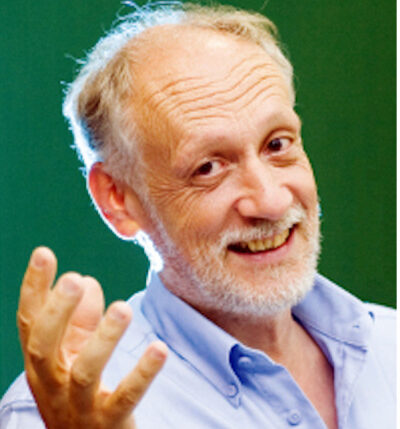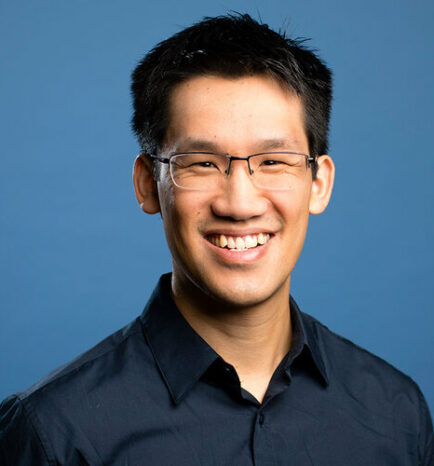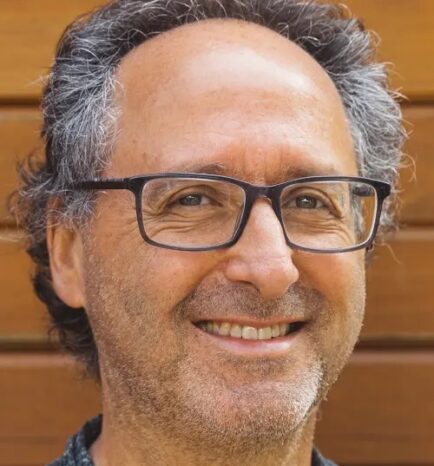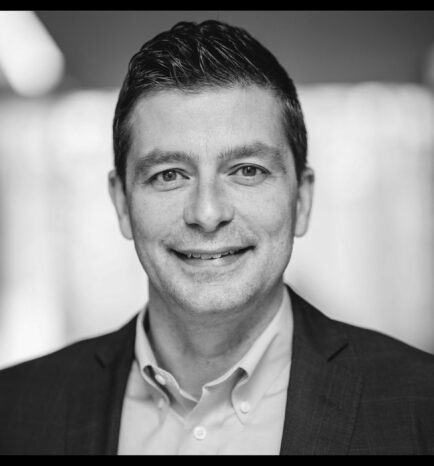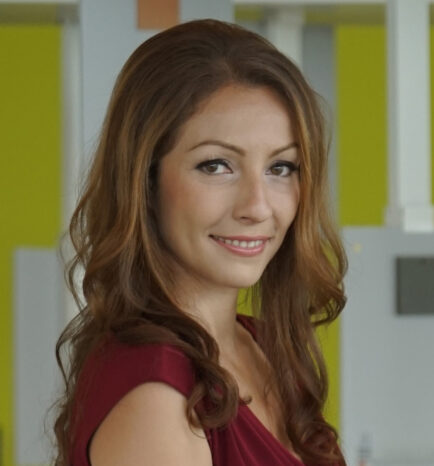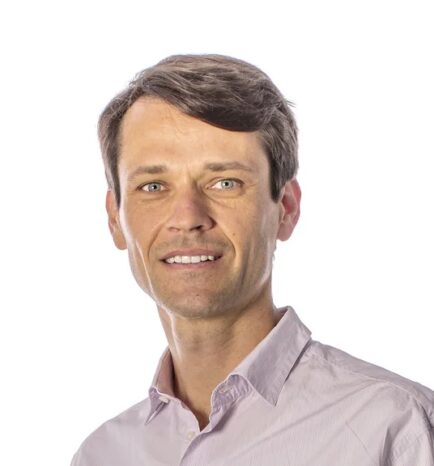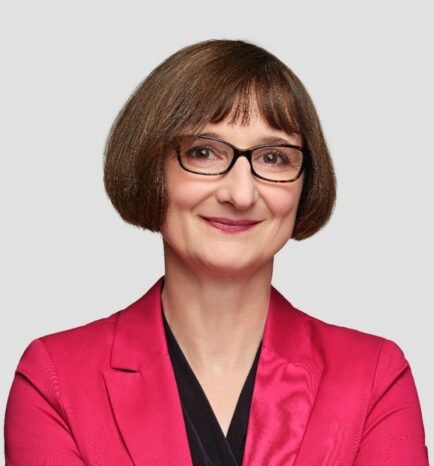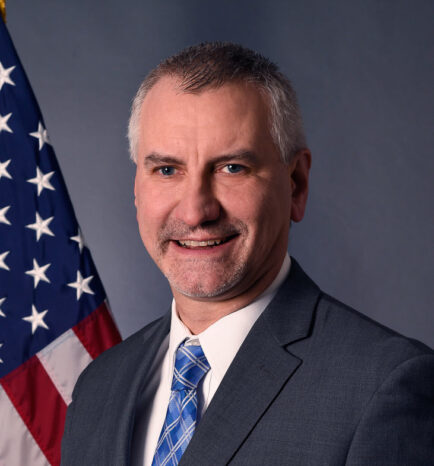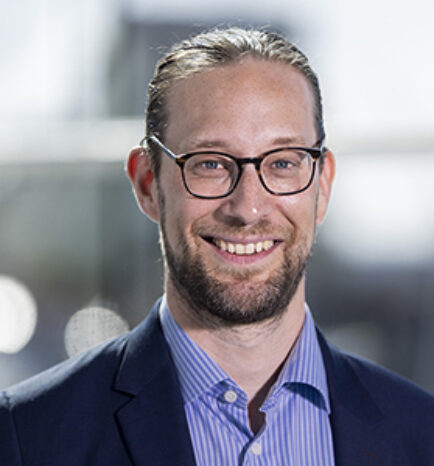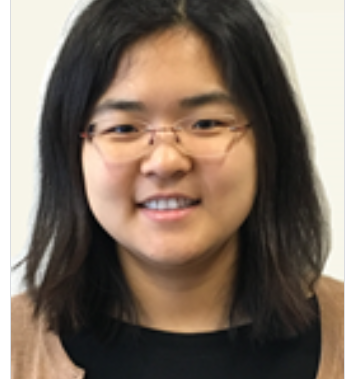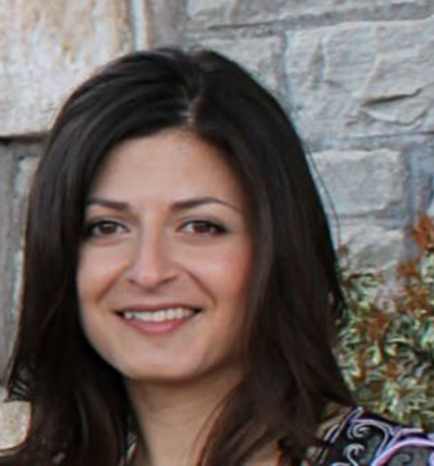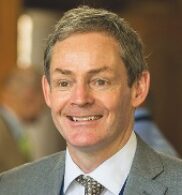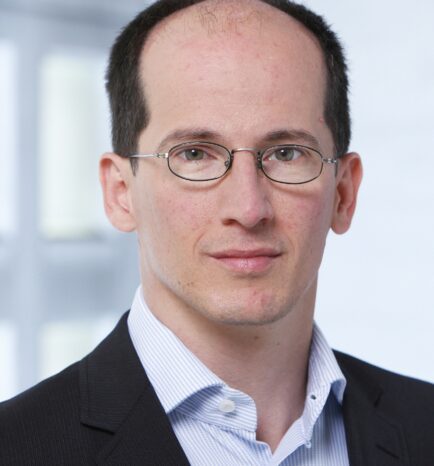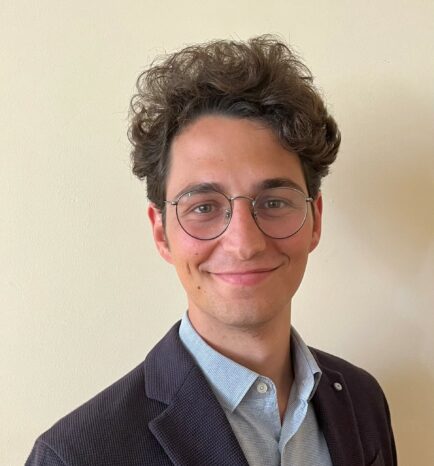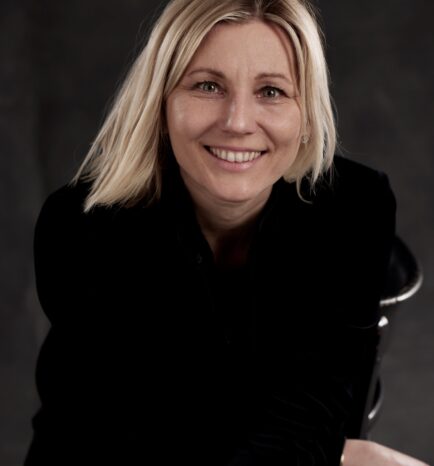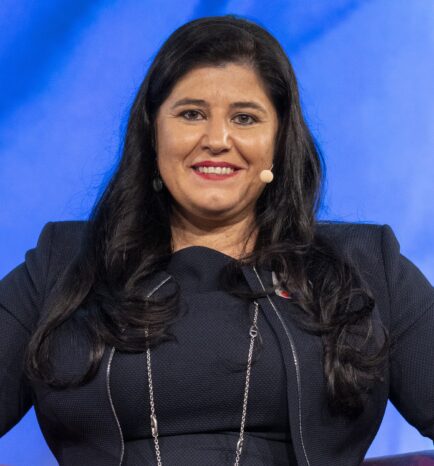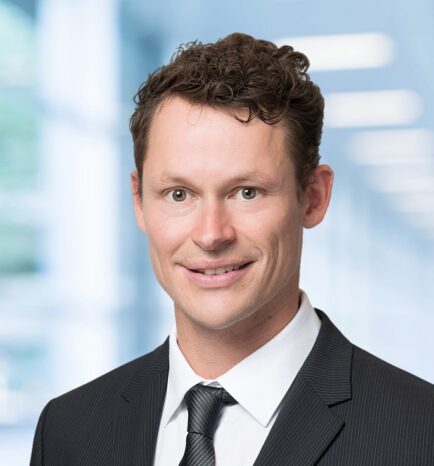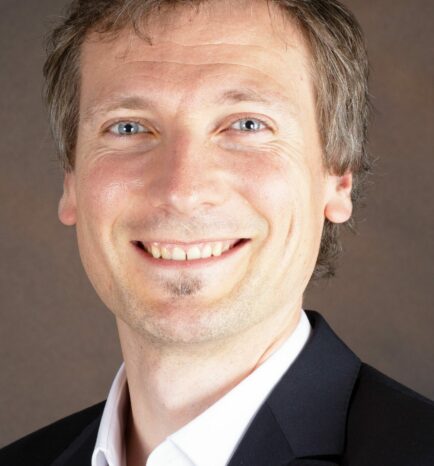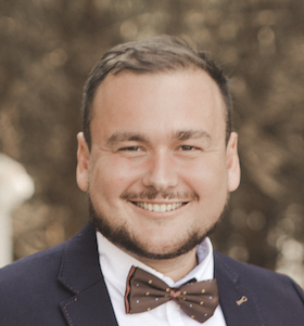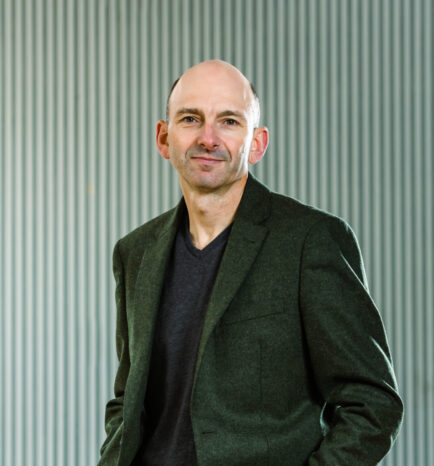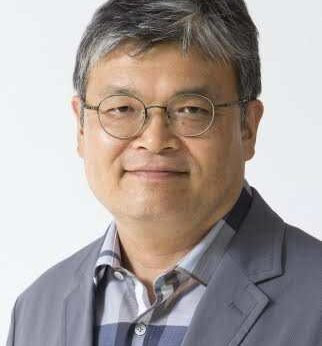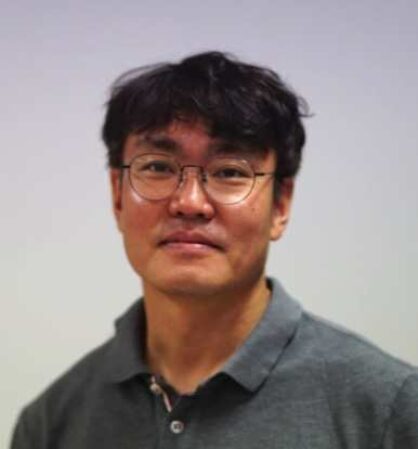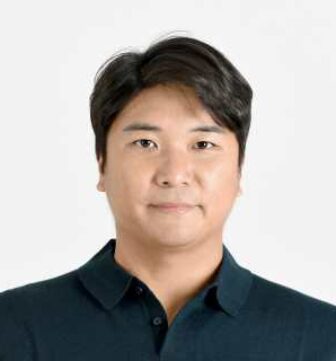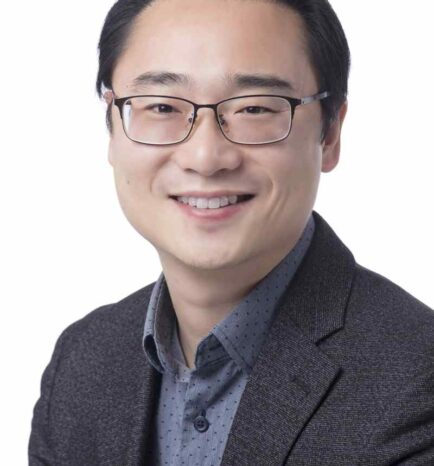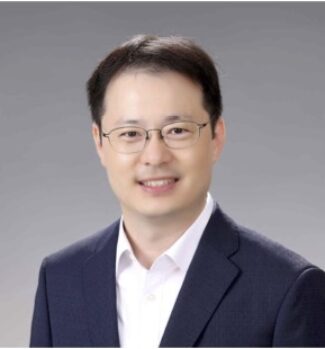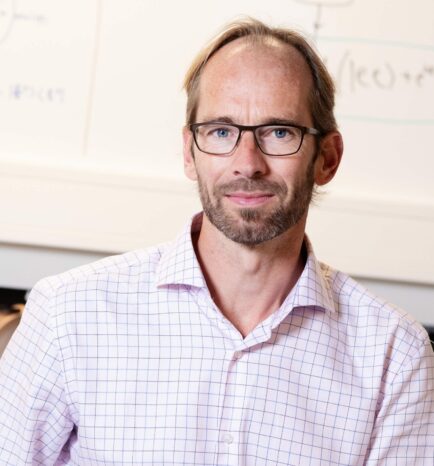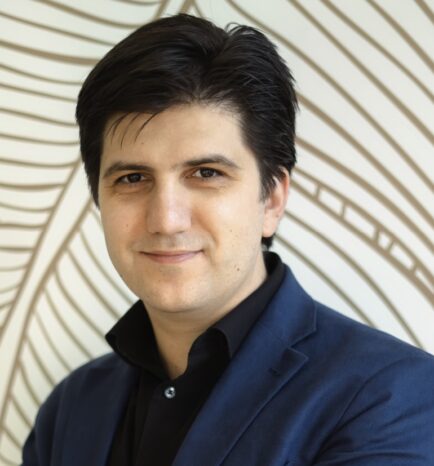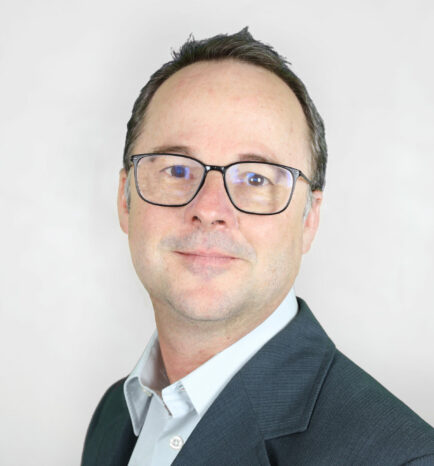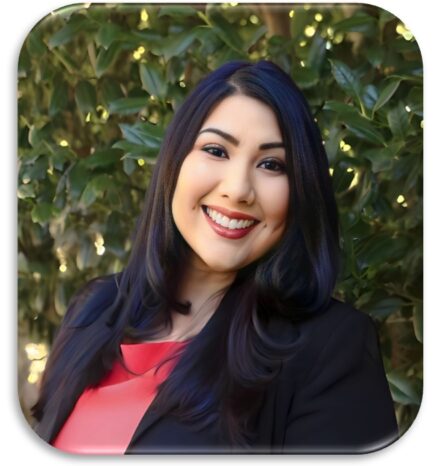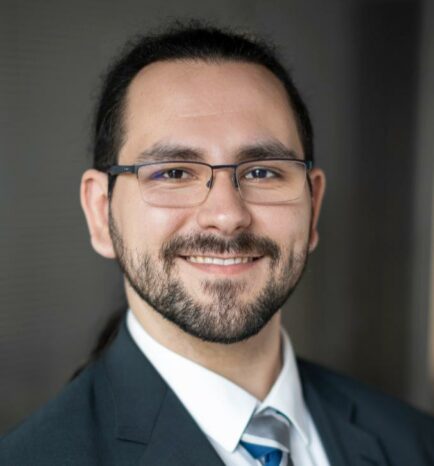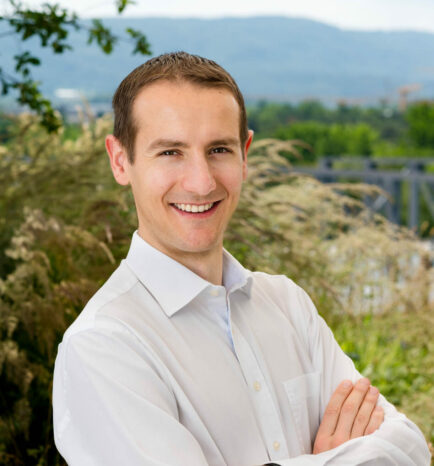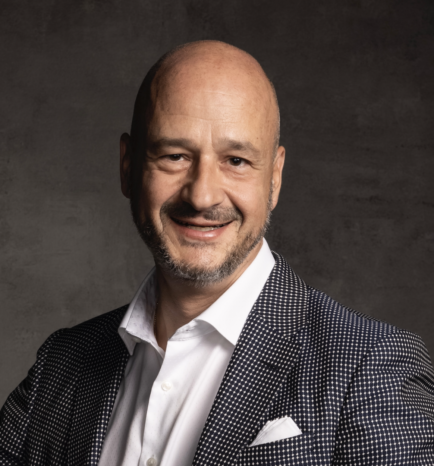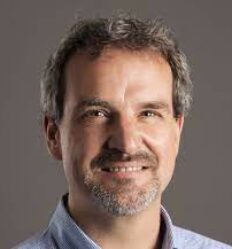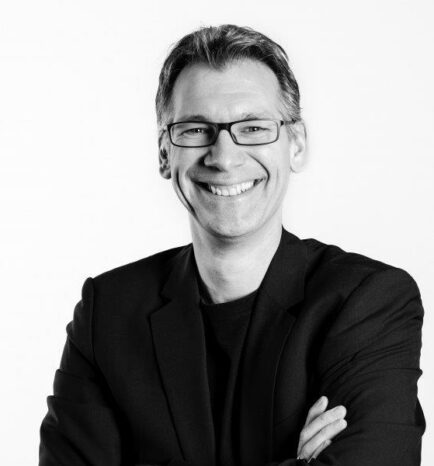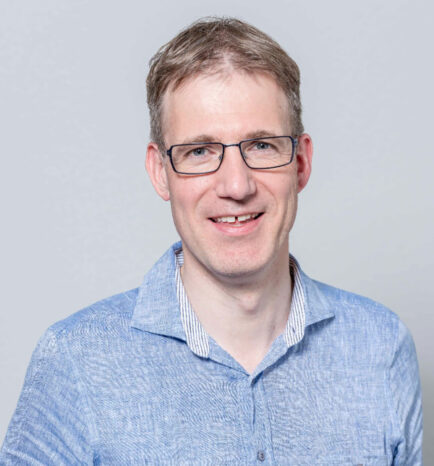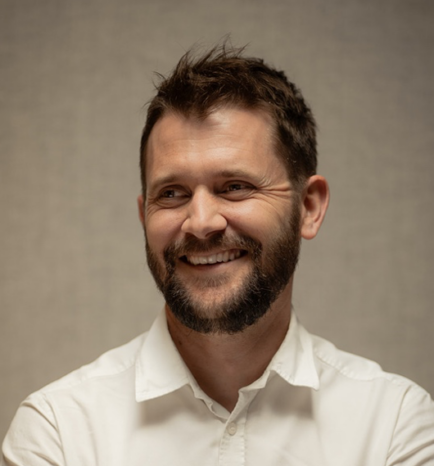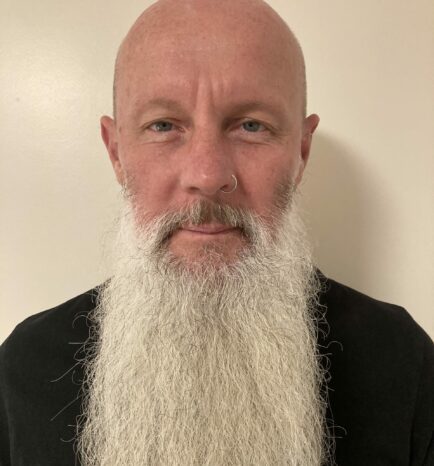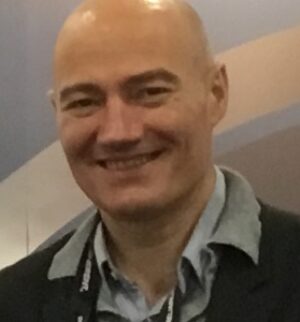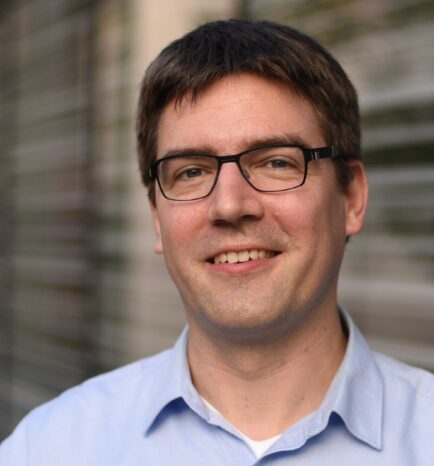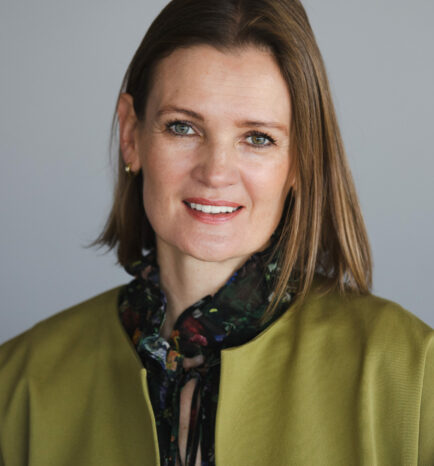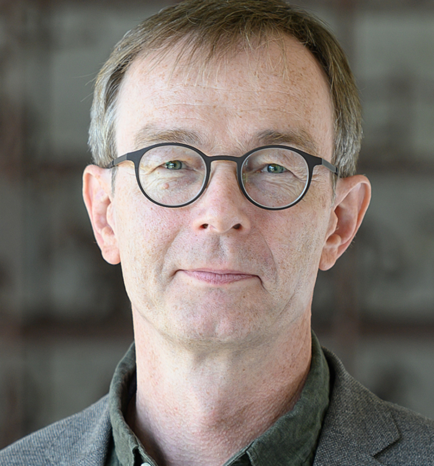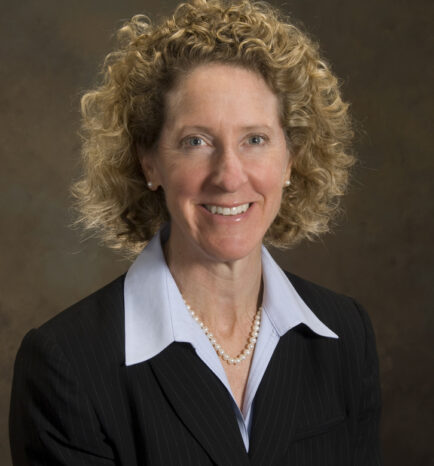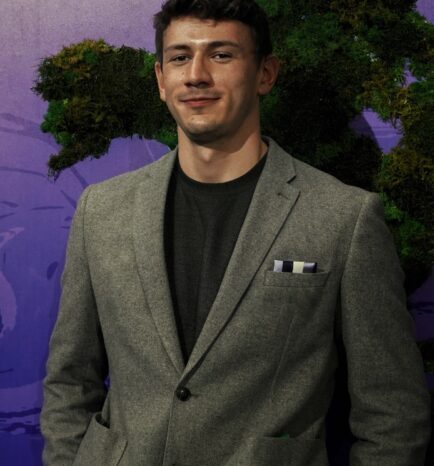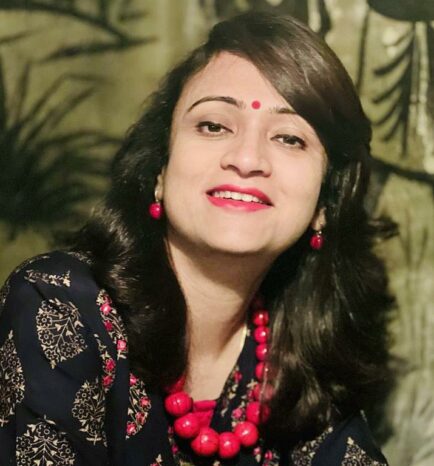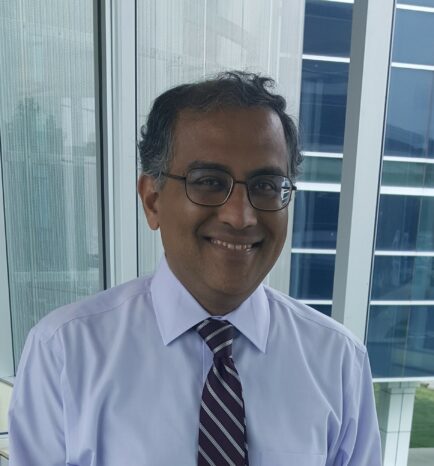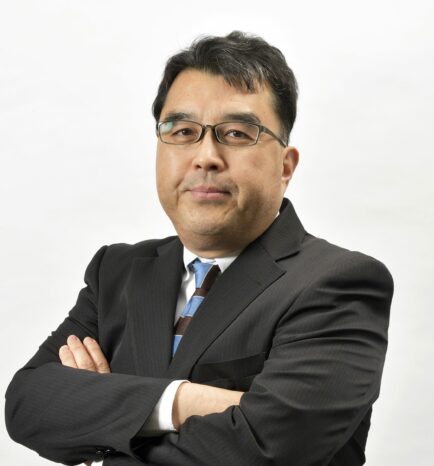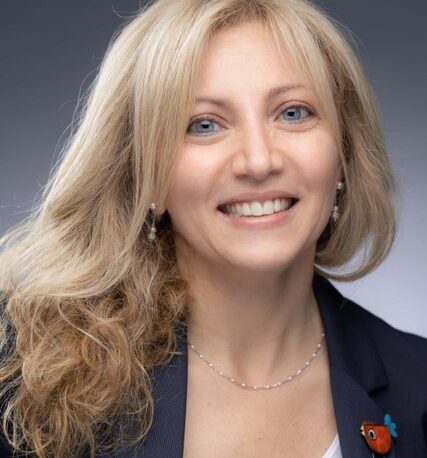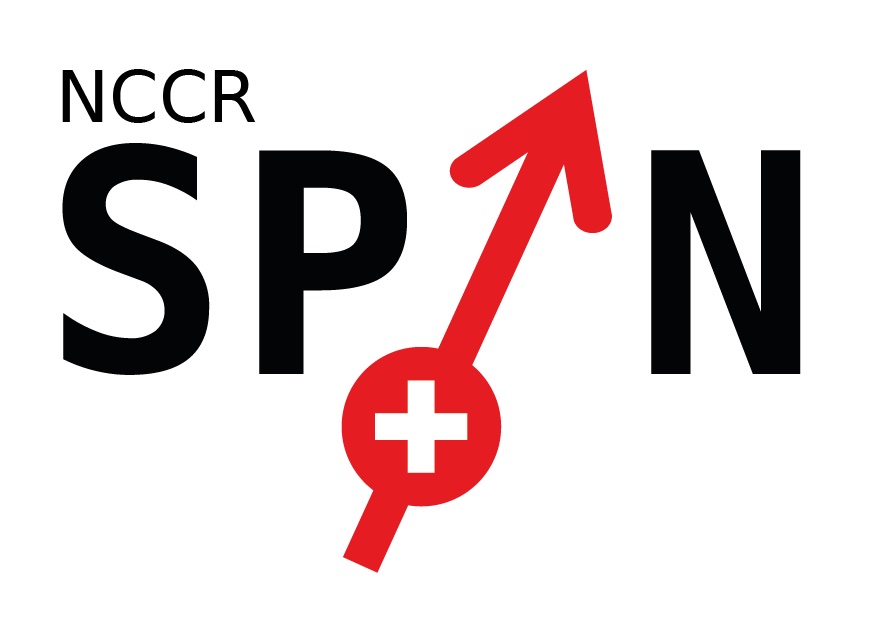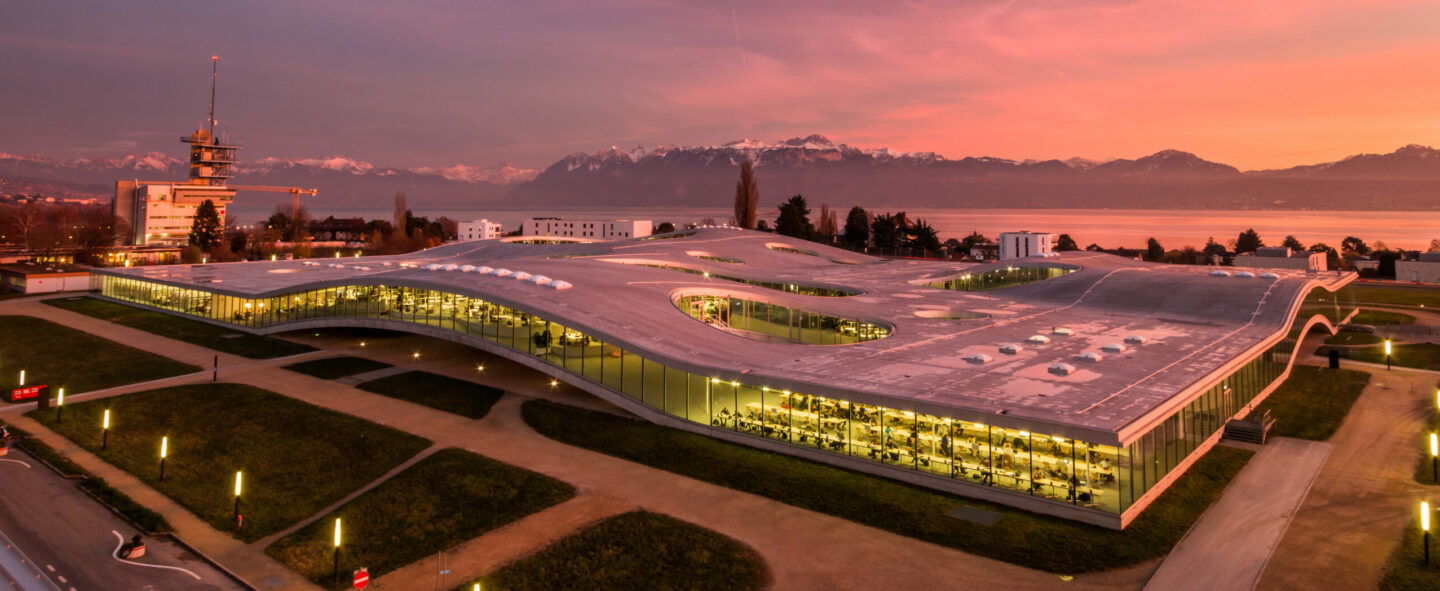
On the verge of new technological breakthroughs, governments, universities, and companies across the world are investing heavily in quantum research and innovation, as well as talent and workforce development. Held in Lausanne on October 14, 2023, the Swissnex Quantum Summit will explore best practices in building multi-stakeholder quantum ecosystems at the local and national levels, while connecting them on a global scale. The moment is ripe to bring together quantum initiatives from different countries to jointly accelerate breakthroughs and shape the quantum economy.
Hosted at EPFL’s Rolex Learning Center, the Swissnex Quantum Summit is part of Project Quantum, Swissnex’s initiative to connect Switzerland and the world in quantum science and technology. For further information on the summit, see background information and detailed program.
Program
Main Sessions | Quantum Ecosystems: Best Practices and Challenges
08:00 – Breakfast
08:30 – Welcome Remarks
08:45 – Building National Quantum Initiatives
09:15 – Fostering Science and Technology Breakthroughs
10:15 – Break
10:45 – Accelerating Commercialization and Impact
11:45 – The Swiss Quantum Ecosystem
12:30 – Lunch
13:45 – Preparing for the Quantum Era
14:45 – Break
Afternoon Breakouts | Addressing Common Challenges and Opportunities
15:00 – Conversation Cafés: Session I
- Public and Private Funding
- Regional Innovation Hubs and Competence Centers
- Use Cases and End Users
- Talent Pipelines and Exchanges
- Computing Ecosystem
- Sensing, Networking, and Cryptography Ecosystem
- Quantum Materials and Enabling Technologies
15:40 – Rotation
15:45 – Conversation Cafés: Session II (same topics as Session I)
16:25 – Transition
Evening Plenary | Enhancing International Collaboration
16:30 – Insights from Conversation Cafés: Where Do We Go from Here?
17:30 – Reception
19:00 – End
Travel Information
Participants should book their travel and lodging independently. Please refer to the travel brochure for more information.
We kindly ask all speakers and participants to cover their own costs.
Speakers
-
![]()
Bio
Nicolas Gisin
Swiss Quantum Commission (Switzerland)Nicolas Gisin is President of the Swiss Quantum Commission, the coordinating body for the Swiss Quantum Initiative. The Initiative was launched in 2023 to further strengthen the leading position of the Swiss quantum ecosystem. Gisin is professor emeritus at the University of Geneva with a focus on quantum optics and sensors. His research in telecom and the sensing domains led to many patents and technological transfers to Swiss and international industries. More recently, the demonstration of quantum cryptography and of long distance quantum entanglement received attention from the international scientific community as from the general public. In 2009, Gisin was awarded the First Biennial John Stewart Bell Prize for Research on Fundamental Issues in Quantum Mechanics and their Applications.
-
![]()
Bio
Tom Wong
National Quantum Coordination Office (USA)Tom Wong is the Quantum Liaison for the National Quantum Coordination Office at the White House Office of Science and Technology Policy, where he works on workforce and outreach activities in support of the National Quantum Initiative and serves as the Department of Energy’s Designated Federal Officer for the National Quantum Initiative Advisory Committee. He is currently on detail from the Department of Energy, where he is a Program Manager in QIS in the Office of Science’s Advanced Scientific Computing Research program. Tom is on sabbatical from Creighton University, where he is an assistant professor of physics, and his research is focused on quantum algorithms, especially those involving quantum versions of random walks. Tom graduated from Santa Clara University, triple majoring in physics, computer science, and mathematics while minoring in urban education. Afterward, he served as an inner city high school teacher. Then, he earned a PhD in physics from the University of California, San Diego, followed by two postdocs in computer science at the University of Latvia and the University of Texas at Austin.
-
![]()
Bio
Barry Sanders
University of Calgary (Canada)Dr. Barry Sanders is Director of the Institute for Quantum Science and Technology at the University of Calgary, Lead Investigator of the Alberta Major Innovation Fund Project on Quantum Technologies, a Distinguished Chair Professor at the University of Science and Technology China, and a Vajra Visiting Faculty member of the Raman Research Institute in India. He completed a PhD in 1987 at Imperial College London supervised by Professor Sir Peter Knight.
Dr. Sanders is especially well known for seminal contributions to theories of quantum-limited measurement, highly nonclassical light, practical quantum cryptography and optical implementations of quantum information tasks. His current research interests include quantum algorithms and implementations of quantum information tasks. -
![]()
Bio
Anna Fontcuberta
EPFL (Switzerland)Professor Anna Fontcuberta i Morral is a physicist and materials scientist and head of the Laboratory of Semiconductor Materials at EPFL. Her research focuses on semiconductor nanowires, which constitute attractive building blocks for the assembly of novel nano-electronic and nano-photonic systems for use in quantum systems. Professor Fontcuberta i Morral also serves on the Presiding Board of the Swiss National Science Foundation’s National Research Council.
-
![]()
Bio
Francesco Bova
Creative Destruction Lab (Canada)Francesco Bova is an Associate Professor at the University of Toronto’s Rotman School of Management. Francesco is also the Academic Lead for Creative Destruction Lab’s Toronto site, the lab economist for its quantum stream, and a moderator for numerous streams. Francesco has diverse research interests and has published his work in journals from a variety of management disciplines. Most recently, his research has focused on the economics of quantum technologies. This research includes his co-authored work on quantum economic advantage and the commercial applications of quantum computing. Francesco is also an award-winning educator and leads the CDL Partners module on The Simple Economics of Quantum Computing.
-
![]()
Bio
Elica Kyoseva
Wellcome Leap (USA)Elica Kyoseva works at Wellcome Leap as the Director of the Quantum for Bio Program, a $40M +$10M program focused on identifying, developing, and demonstrating biology and healthcare applications that will benefit from the quantum computers expected to emerge in the next 3-5 years. Kyoseva has expertise in quantum computing and its applications to drug discovery. She was a Fellow at the Massachusetts Institute of Technology, a Marie Curie Fellow at Tel Aviv University, and served as Entrepreneur in Residence and Advisor at a venture capital firm. Most recently, she worked at Boehringer Ingelheim as a quantum computing scientist. She earned her PhD in Quantum Optics from Sofia University, Bulgaria.
-
Bio
Catherine Lefebvre
PASQAL (USA)Catherine Lefebvre is Vice President for Global Policy and Partnerships at PASQAL. She also serves as Senior Advisor to the Open Quantum Institute, an initiative of the Geneva Science and Diplomacy Anticipator (GESDA). Prior to joining Pasqal, Lefebvre served in multiple roles, including as U.S. and Canada Innovation Ambassador for quantum technology company M Squared; advisor in quantum technologies at Quebec Ministry of Economy and Innovation; and as Science Liaison Officer for Element AI (acquired by ServiceNow), a global developer of AI solutions. Lefebvre has a background in research with a Ph.D. in molecular physics and quantum chemistry with training in science diplomacy.
-
![]()
Bio
Jeongwon Lee
Korea-Europe Quantum Science Technology Cooperation Center (South Korea)Coming soon.
-
![]()
Bio
Sadik Hafizovic
Zurich Instruments (Switzerland)Sadik Hafizovic is co-founder and CEO of Zurich Instruments. He received his PhD in Electrical Engineering from ETH Zurich in 2006 for research at the Institute for Quantum Electronics. After a postdoctoral experience at the Bio Engineering Laboratory of ETH, he co-founded the spin off Zurich Instruments in 2008. Since then, he has developed the company from an innovative lock-in manufacturer to a major T&M player and leading instrumentation provider for quantum computing. Entrepreneurship, organization development, FPGA technologies, quantum computing, experimental physics, and many things outdoors on land or on water resonate with him.
-
![]()
Bio
Heike Riel
IBM Research (Switzerland)Dr. Heike Riel is an IBM Fellow, Head of Science & Technology, and Lead of IBM Research Quantum Europe at IBM Research. She leads the research agenda of the Science & Technology department, aiming to create breakthroughs in Quantum Computing, Physics of Artificial Intelligence, Nanoscience and Nanotechnology, Precision Diagnostics, and Smart System Integration.
-
![]()
Bio
Michael Hayduk
Air Force Research Lab (USA)Dr. Michael J. Hayduk is the Deputy Director, Information Directorate, Air Force Research Laboratory, Rome, New York. The directorate’s mission is to lead the development and integration of Air Force warfighting information technologies for Command, Control, Communications, Computers, Intelligence, and Cyber. Dr. Hayduk plays a key role in overseeing an annual budget of over $1.8 billion, leading the activities of over 1,200 scientists, engineers, administrative and support personnel. For the past eight years, Dr. Hayduk was the Chief of the Computing and Communications Division, Air Force Research Laboratory, Information Directorate, Rome, New York. The division’s mission is to lead the discovery, development and integration of affordable computing, networking and communications technologies for our air, space and cyberspace forces. Dr. Hayduk was responsible for defining, planning, budgeting, advocating, managing and directing the execution of the research program and leads all aspects of personnel management within the division.
-
![]()
Bio
Mattias Christandl
University of Copenhagen (Denmark)Matthias Christandl is a professor of mathematics at the University of Copenhagen developing Quantum Software for a future Quantum Computer.
He is the center leader of the Quantum for Life Center funded by the Novo Nordisk Foundation and the chairman of the University of Copenhagen Quantum Hub. Matthias holds a PhD from the University of Cambridge and is a member of the Royal Danish Academy of Sciences and Letters. -
![]()
Bio
Yvonna Li
Roche (Switzerland)Yvonna Li is a senior scientist in Roche Pharma Research & Early Development, based in Basel. Her focus is on machine learning and its application to image analysis in the context of early clinical development. She has a special interest in quantum computing and its application to the pharma industry and machine learning.
-
![]()
Bio
Denise Powell
Compound Semiconductor Centre (UK)Dr Denise Powell is the Programme Manager for Quantum Technologies at the Compound Semiconductor Centre (CSC) and runs multiple industry-academia quantum technology collaborative projects under the UK National Quantum Technologies Programme, including the open-access UK Foundry for Quantum Photonic Components (QFoundry) project, to upscale the manufacturability of quantum photonic devices. Prior to joining CSC in 2017, Denise held roles across open innovation, process integration, process engineering and product development at IQE, NXP and International Rectifier.
-
![]()
Bio
Dominic O’Brien
University of OxfordProfessor Dominic O’Brien is a Professor of Engineering Science at Oxford and leads the optical communications group. He is the Director of the UK National Hub in Quantum Computing and Simulation. This is one of the four Quantum Technology Hubs funded as part of the UK National Quantum Technologies programme, running from 2019-2024. His research is in optical wireless communications, with a particular focus on system demonstration, with a number of world-firsts in this area. Recent demonstrations, together with industrial and academic partners, include Quantum Key Distribution using free-space links between handheld devices, between UAVs and ground stations, and Terabit/s wireless links within buildings. He also leads the recently funded EPSRC Hub in All-Spectrum Connectivity
-
![]()
Bio
Andreas Wallraff
ETH Zurich (Switzerland)Andreas Wallraff is Full Professor for Solid-State Physics in the Department of Physics at ETH Zurich. His work focuses on the experimental investigation of quantum effects in superconducting electronic circuits for fundamental quantum optics experiments and for applications in quantum information processing. His group at ETH Zurich researches micro- and nano-electronics as well as hybrid quantum systems combining superconducting electronic circuits with semiconductor quantum dots, making use of fast and sensitive microwave techniques at ultra-low temperatures.
-
![]()
Bio
Diego Rodriguez Mejias
Department for Science, Innovation, and Technology (UK)Diego is a Senior Adviser at the Office for Quantum Technologies in the Department for Science, Innovation and Technology where he is working on the delivery of the UK National Quantum Strategy and leading on Quantum governance, regulation and standards. Previously, Diego worked at the Regulatory Horizons Council, an independent expert committee, that advises the UK government on regulatory reform to encourage the rapid and safe development of emerging technologies. He recently led the publication of a report on Neurotechnology regulation. Diego has also worked at the UK Government Office for Science and the GSMA, the international association of the telecommunications industry. He has a master’s in Technology Policy from the University of Cambridge and a bachelor’s in Physics and Philosophy from King’s College London.
-
![]()
Bio
Alexandra Beckstein
QAI Ventures (Switzerland)Alexandra Beckstein is Founder of QAI Ventures, a company focused on empowering Quantum Technologies’ global transformation with strategic startup investments and collaborative ecosystem building. The investment activities focus on early stage startups in the whole supply chain of Quantum Technologies. In the uptownBasel project, out of which the company was born, she was responsible for the strategy development as well as building the startup ecosystem. A geoscientist by training with advanced education in business and leadership she has worked in her professional career for startups, SMEs and government. She was founder of her company in Berlin in the field of renewable energy and is author of the book: “Bossing it- The future belongs to the bold.” She is driven by the conviction that technology is a key to solving many global challenges and that ecosystems must replace the traditional ego-systems.
-
![]()
Bio
Lennig Pedron
Trust Valley (Switzerland)Lennig Pedron has expertise in cybersecurity and emerging technologies applied to the digital trust economy. She works in particular for the EPFL Innovation Park Foundation and is CEO of the Swiss initiative Trust Valley, the center of excellence in digital trust and cybersecurity. She is co-founder and president of the NGO iCON, representing an international community of over 100 digital trust experts. Lennig Pedron represents iCON at the Council of Europe. She has been Data Protection expert for the Swiss Confederation. She provides advice and training to different audiences such as the police, prosecutors or banks. She has been a judge for the 9/12 geopolitical challenge of the GCSP for 4 years and she has spoken at the Forum of the World Summit on the Information Society (WSIS). Lennig Pedron is the co-author of the book “The Fundamentals of Cyber Crisis Management” published by Ellipses in June 2022.
-
![]()
Bio
Gabriel Puebla-Hellmann
QZabre (Switzerland)Dr. Puebla Hellmann is CEO of QZabre, an ETH Spinoff that creates NV Scanning Magnetometers and NV scanning probes. An enthusiast for moving quantum technologies from the lab to real world applications, he started his career with a PhD in Prof. Andreas Wallraff’s Quantum Device Lab at ETH Zürich. He then moved to IBM Zürich, first in collaboration with the University of Zurich, then with the University of Basel, where he worked to create a mass-fabrication compatible platform for molecular electronics. Mid 2018, immediately convinced of the potential that NV technology offers, he joined QZabre as a late cofounder. Dr. Puebla Hellmann has authored scientific papers published in Nature as well as several patents and won the Zeiss Quantum Challenge in 2020.
-
![]()
Bio
Lorenz Herrmann
EMPA (Switzerland)Lorenz Herrmann is Head of Department and Member of the Directorate at Empa. In this role, he is responsible for the Research Focus Area Nanoscale Materials and Manufacturing Technologies. In terms of quantum systems, his interest is mainly in new materials and enabling technologies for quantum devices.
-
![]()
Bio
Artem Nikitin
Delft Circuits (Netherlands)Artem Nikitin is leading commercial activities at Delft Circuits. He is responsible for expanding the partners and customers worldwide as well as marketing, PR and communication. Artem received a PhD in experiment condensed matter physics from the University of Amsterdam in 2017. Then obtained an EU Marie Curie fellowship to continue the research as a postdoc at the Paul Scherrer Institute in Switzerland. In 2019, he joined a young startup from Delft to create a commercial foundation for the ambitious technology – Cri/oFlex®. This technology aims to massively scale the qubit architecture by introducing flexible high-frequency cryogenic cabling.
-
![]()
Bio
Richard Curry
University of Manchester (UK)Professor Richard Curry is Vice-Dean Research and Innovation within the Faculty of Science and Engineering at the University of Manchester. He is also a National Research Area Lead for the UK Henry Royce Institute (www.royce.ac.uk) research area of ‘Atoms to Devices’, and the co-leader of the UK Materials for Quantum Network (https://m4qn.org). He is Chair of the 30th International Conference on Amorphous and Nanoscale Semiconductors (www.icans30.com) being held in Manchester in 2024. His research focuses on the study and development of new photonic materials and devices and doped solid-state materials for quantum technologies. He developed the (now commercialised) P-NAME system for focused ion doping (https://www.royce.ac.uk/equipment-and-facilities/p-name/) and is the principal investigator of a portfolio of several research grants including the ~£10m EPSRC Programme Grant ‘Nanoscale Advanced Materials Engineering (www.name-pg.uk).
-
![]()
Bio
Eunseong Kim
Korea Advanced Institute of Science and Technology (Korea)Eunseong Kim is the Chair of the Graduate School of Quantum Science and Technology and Professor of the Department of Physics at KAIST. He is an alumnus of the Pusan National University, ROK and the Pennsylvania State University, USA. He studied low temperature physics and obtained his Ph. D in 2004 under the supervision of Moses H. W. Chan. He joined the Korea Advanced Institute of Science and Technology (KAIST) in 2006. Since then, he has been working on various low temperature quantum phenomena and superconducting based quantum computing. He is the Director of the Center for K+Quantum Science and Technology, and the Center for KAIST Quantum Core Research Facility.
-
![]()
Bio
Kiwon Moon
Electronics and Telecommunications Research Institute (Korea)Kiwon Moon works at the Electronics and Telecommunications Research Institute as the Chief Technical Staff of the Quantum Computing Section. Kiwon has many years of expertise in compound semiconductor devices, laser diodes, terahertz devices, and near-field optics. Recently, he is leading the development of a thin-film lithium niobate (TFLN) QPIC platform and quantum interconnection system based on the TFLN QPIC devices. He is also interested in quantum memory and quantum computing based on the TFLN PIC platform.
-
![]()
Bio
Jinwoong Cha
Korea Research Institute of Standards and Science (Korea)Jinwoong Cha is a senior research scientist at the Quantum Technology Institute of the Korea Research Institute of Standards and Science(KRISS). He has received his Ph.D in Mechanical Engineering in 2018 from ETH Zurich in 2018 with focus on nanoelectromechanical systems and mechanical metamaterials. Before joining to KRISS, he was a postdoctoral scholar at Caltech(2018) and KAIST(2018-2020). His current research focuses on the development of microwave-to-optical quantum transducers by integrating superconducting microwave circuits, nanomechanical resonators and photonic devices.
-
![]()
Bio
Taeyoung Choi
Ewha Women’s University (Korea)Taeyoung Choi is an associate Professor in the Department of Physics at Ewha Womans University. His research aims to investigate Quantum properties of individual atoms and molecules and to utilize them for Quantum computation and simulation using trapped-ion platforms. His group at Ewha focuses on performing high fidelity and high speed quantum gates based on laser and microwave pulse shaping techniques, enabling for a scalable trapped-ion quantum processor.
-
![]()
Bio
Jeongwon Lee
Korea-Europe Quantum Science Technology Cooperation Center (Korea)Jeongwon Lee is director general of the Korea-Europe Quantum Science and Technology Cooperation Center. He received a doctoral degree in technological policy and had planned the national ICT industrial & R&D Policy for over 10 years at the Institute for Information & Communication Technology Planning & Evaluation and was the administrative secretary for planning the national R&D program of quantum communication and quantum sensing. He also worked in LIGnex1 as an RF and radar subsystem engineer. Currently, he is interested in international R&D cooperation, policy, and the R&D ecosystem in the quantum science technology field.
-
![]()
Bio
Wolfgang Tittel
University of Geneva (Switzerland)Professor Wolfgang Tittel is an experimental physicist specializing in quantum optics and
quantum communications. He is a professor at University of Geneva and Chair of Quantum Communications at Constructor Institute. Some of his notable research results include the first demonstration of measurement-device independent quantum key distribution, which is of particular interest due to its resilience to quantum hacking, its suitability for building networks, and its upgradability to quantum repeater-based communication links; city-wide quantum teleportation; and the storage and recall of members of entangled photon pairs using rare-earth-based quantum memory. -
![]()
Bio
Yong-Ho Lee
Korea Research Institute of Standards and Science (Korea) -
![]()
Bio
Davide Venturelli
Universities Space Research Association (USA)Dr. Davide Venturelli is Associate Director for Quantum Technologies and Fellow at the Universities Space Research Association (USRA). He has worked in the NASA Quantum AI Laboratory (QuAIL) since its foundation in 2012 under the NASA Academic Mission Service contract, invested in research projects dealing with quantum optimization applications and their implementation in a hardware-software co-design approach. He has authored more than 50 publications and 9 patents on the subject of AI, Theoretical Physics, Quantum Computing, and Robotics. He teaches Quantum Integer Programming as an adjunct professor at Carnegie Mellon University Tepper’s School of Business. He has experience winning, managing, and leading multi-million dollar R&D projects as Principal Investigator or co-PI, sponsored by DARPA, NSF, and DOE. He is the co-lead of the Ecosystem task of the National Quantum Initiative Superconducting Quantum Materials and System (SQMS) Center at Fermi National Laboratory. In 2021 he was elected member of the Quantum Economic Development Consortium (QED-C) steering committee.
-
![]()
Bio
Pascal Fischer
Swiss National Science Foundation (Switzerland)Pascal Fischer is a physicist and head of Projects MINT at the Swiss National Science Foundation. In this role, he and his team organize and facilitate the evaluation of applications submitted for project funding in the fields of mathematics, informatics, natural sciences, and technology. This includes the previous “Quantum Transitional Call” and the upcoming “Quantum Call 2024”.
-
![]()
Bio
Amanda Williams
Lockheed Martin (USA)Amanda Williams is a passionate and driven strategic thinker with 20+ years of defense industry experience. Currently, Amanda leads as an Industrial Development (ID) Country Manager at MFC for the PAC-3 MSE Offset Program in Switzerland and she has over 11 years of offset specific expertise. Amanda’s offset portfolio includes experience in Taiwan, Norway, Denmark, Netherlands, Canada, and Indonesia. Amanda earned her Bachelor of Business Administration in Finance with an emphasis in International Business from Texas A&M University. Additionally, Amanda completed her Masters of Business Administration (MBA) from Dallas Baptist University. Outside of work, Amanda loves spending time with family, reading, baking, and cheering for her daughter at field hockey games.
-
![]()
Bio
Matija Zesko
Alice & Bob (France)Matija Zesko is a Quantum Engagement Manager at Alice & Bob, a quantum computing hardware start-up. He is part of The Box, a consulting unit dedicated to offering valuable insights into the status and potential of quantum computing, helping clients devise effective quantum strategies that focus on high-value applications with a hardware-agnostic approach. Before Alice & Bob, he was a Specialist in Quantum Technologies at the management consultancy McKinsey & Company. His educational background is in physics: he completed his PhD at ETH Zurich in the field of experimental atomic physics working on Rydberg atoms under the guidance of Prof. Dr. Frédéric Merkt. In his free time, Matija enjoys building LEGO models and learning about history.
-
![]()
Bio
Frederik F. Flöther
QuantumBasel (Switzerland)Dr. Frederik F. Flöther is Lead Quantum & Deputy CEO at QuantumBasel, the first commercial quantum hub of Switzerland. Prior to that, he was over 7 years with IBM, most recently responsible for healthcare and life sciences at IBM Quantum. Frederik has more than a decade of experience in quantum computing and artificial intelligence (AI) and the delivery of global consulting and research engagements. He was elected to the IBM Academy of Technology and appointed Master Inventor and Qiskit Advocate. Frederik holds a PhD in physics, with a focus on photonic quantum computing, and a MA, MSci, and BA from the University of Cambridge as well as a professional certificate in quantum computing applications from MIT. In total, he has authored over 40 filed patents, peer-reviewed publications, white papers, and book chapters, e.g. “Predicting the early risk of chronic kidney disease in patients with diabetes using real-world data” (Nature Medicine 25.1 (2019): 57-59).
-
![]()
Bio
Damir Bogdan
QuantumBasel (Switzerland)Damir Bogdan, CEO uptownBasel Infinity is heading a Center of Excellence for Quantum-computing and AI, QuantumBasel. uptownBasel is an innovation campus in Basel, Switzerland with global outreach and partnerships. Besides that, Damir is CEO of Actvide AG, a consulting company specialized on transformation within the digital age, leading C-Levels into the new future. He is active in Switzerland as well as in Silicon Valley. Part of his work is organizing strategy workshops and global immersions for Executives to the US. He is engaged at Plug and Play, Silicon Valley’s largest innovation platform.
As a Member of the Executive Board, he was a long time CIO & Head of Operations of Switzerland’s third biggest banking group, Raiffeisen. Prior to this, he was part of the strategy group of Swisscom, founded a near shore develop- ment company in southern Europe and held different roles within the IT sector.
Damir is multiple Board-Member within the Health Care, High-Tech and Industry sector. He is Senior Advisor at IWI University of St. Gallen and member of several Swiss startup committees and juries. He is a well-booked keynote- speaker and panellist on digital transformation, cultural change, disruption and startups. -
![]()
Bio
Grégoire Ribordy
ID Quantique (Switzerland)Dr. Gregoire Ribordy, co-founder and CEO of ID Quantique, has 20 years of experience in various R&D and management roles in the field of optical measurements and communication systems. He founded ID Quantique in 2001 and has managed the company since then. Prior to this, he was a research fellow at the Group of Applied Physics of the University of Geneva between 1997 and 2001. In this position, he actively developed quantum cryptography technology and is the holder of a number of patents in the field. Between 1995 and 1996, Dr. Ribordy worked in the R&D division of Nikon Corp. in Tokyo.
Dr. Ribordy is the recipient of several awards such as the 2001 New Entrepreneurs in Technology and Science prize, the 2002 de Vigier award and the Swiss Society for Optics and Microscopy 1999 prize. At the end of 2005, he was selected as one of the most innovative individuals in information technology worldwide by the World Technology Network. Dr. Ribordy, with the other co-founders of IDQ, were awarded the Medal of Innovation in 2017 and the Impact Award in 2019 by the University of Geneva. -
![]()
Bio
Ulrich Mans
Quantum Delta NL (Netherlands)Ulrich Mans is responsible for Quantum Delta NL’s International Strategy. He has a background in digital innovation, ecosystem policy and geopolitics. Before joining Quantum Delta NL, he worked a.o. for the European Union’s external action service, as innovation attaché in Washington fro the Dutch government, at Leiden University and for numerous think tanks across Europe. He holds a MA in international conflict management and a PhD in environmental studies.
-
![]()
Bio
Dominik Zumbühl
University of Basel (Switzerland)Professor Dominik Zumbühl is a physicist at the University of Basel. His lab conducts quantum transport experiments in semiconductor nanostructures, in order to investigate quantum coherence, electron and holes spins as well as nuclear spins and interactions. In addition to examining spin quits for quantum computing, he also researches nanowire and 1D systems for novel quantum matter, and spin-orbit coupling in quantum dots, wires, and wells, among other projects. Zumbühl serves as Director of the Swiss National Centre of Competence in Research: Spin Qubits in Silicon.
-
![]()
Bio
Mathieu Munsch
Qnami (Switzerland)Mathieu Munsch is a cofounder and the CEO of Qnami. He holds an engineering degree from the ENS Grenoble INP and a PhD on quantum mechanics from the University Grenoble Alpes. He worked 10 years as a researchers developing new sources of quantum light and lasers. He is the author of > 15 publications in high profile papers such as Nature and the Physical Review. In 2017, Mathieu founded Qnami AG, a pioneer company in the quantum technology industry. Today Qnami is a leader in the emerging market of quantum sensing and metrology. Mathieu is actively supporting the creation of a European quantum ecosystem and training of a new European workforce for quantum applications.
-
![]()
Bio
Rob Thew
University of Geneva (Switzerland)Rob Thew is a senior researcher and group leader of the Quantum Technologies group at the University of Geneva. He studied at the University of Queensland in Australia, and received his PhD from the University of Geneva, Switzerland. Rob Thew is an expert in quantum communication, spanning fundamental to applied topics, and from technology development to systems integration as well as working on quantum sensing in bio and molecular systems. He was the inaugural chair of the Strategic Research Agenda Work Group in the context of the Europe.
-
![]()
Bio
Daniel Brau
Miraex (Switzerland) -
![]()
Bio
Cornelius Hempel
Paul Scherrer Institute (Switzerland)Cornelius earned a PhD in Physics at the University of Innsbruck (Austria) in 2014 under Prof. Rainer Blatt and previously received Masters and Diplom degrees at the University of Michigan (USA) and Martin Luther University Halle (Germany). Later he was a postdoctoral researcher at the Institute for Quantum Optics and Quantum Information in Innsbruck, before moving to the University of Sydney as Research Fellow in 2016. In 2018, he became laboratory lead for all ytterbium-based quantum control experiments and was promoted to Senior Research Fellow (Lvl. C, equiv. to research associate professor in the US) in 2020. Since April 2021, he leads the Ion Trap Quantum Computing group, a co-founder of the ETH Zürich – PSI Quantum Computing Hub, and serves as deputy head at the Laboratory for Nano- and Quantumtechnology.
His research focusses on analog and digital quantum simulation, with a significant focus on chemistry, as well as quantum control and hardware requirements for quantum error correction. For the latter he has been part of the very successful IARPA LogiQ program demonstrating the first logical qubits and serves as a co-pi in the upcoming IARPA ELQ program. -
![]()
Bio
Elena Baranova
University of Ottawa (Canada)Elena Baranova is a Full Professor in the Department of Chemical and Biological Engineering and a co-Director of Nexus for Quantum Technologies (NexQT) Institute at the University of Ottawa, Canada. She received her Ph.D. from École Polytechnique Fédérale de Lausanne (EPFL) in 2005. She was an NSERC post-doctoral fellow with the National Research Council (NRC), Canada (2005-2007) before joining University of Ottawa in 2008 as a tenure-track Assistant Professor. Her field of research is Electrochemical Engineering, Energy and Catalysis. Dr. Baranova has authored over 140 publications, three book chapters and holds one US patent. She is an Executive Editor of the Journal of Chemical Technology and Biotechnology, JCTB (SCI, Wiley) and a Member of the Editorial Board of the Journal of Solid-State Electrochemistry (Springer Nature).
-
![]()
Bio
Tilman Esslinger
ETH Zurich (Switzerland)Tilman Esslinger is Professor of Quantum Optics at the Physics Department of ETH Zurich and a pioneer of Quantum Simulation. He received his PhD from the Ludwig-Maximilians-University of Munich and an honorary degree from Heriot-Watt University. He did groundbreaking work on the superfluid- to Mott-insulator transition in a quantum gas. Together with his team at ETH Zurich he experimentally creates key Hamiltonians describing the inner workings of nature at the quantum level. Major breakthroughs were the realizations of the first fermionic Hubbard model, the observation of the Dicke phase transition in matter-light interaction, the observation of quantized conductance in neutral matter, the creation of Haldane’s model for a topological Chern insulator, the realization of a supersolid, as well as the engineering of density dependent gauge fields.
-
![]()
Bio
Celia Merzbacher
Quantum Economic Development Consortium (USA)Dr. Celia Merzbacher is Executive Director of the Quantum Economic Development Consortium (QED-C), a consortium that aims to enable and grow the U.S. quantum industry. QED-C is supported by the National Institute of Standards and Technology (NIST) and nearly 250 industry, academic and other members and is managed by SRI International. Previously, Dr. Merzbacher was Vice President for Innovative Partnerships at the Semiconductor Research Corporation. In 2003-2008, she was Assistant Director for Technology R&D in the White House Office of Science and Technology Policy and Executive Director of the President’s Council of Advisors on Science and Technology. Dr. Merzbacher is a Fellow of the AAAS and served as Chair of the National Materials and Manufacturing Board of the National Academies of Science, Engineering and Medicine and on the Board of Directors of ANSI.
-
![]()
Bio
Chris Payne-Dwyer
QuantIC (UK)Chris Payne-Dwyer is a Business Development Manager within QuantIC, the UK’s quantum imaging hub and part of the UK National Quantum Technology Programme. With a background in technical innovation for engineering and physics-based sectors, Chris is a driving force for forging collaborative funding projects, and strategic partnerships between academia, government, and private industries. He is responsible for promoting the UK’s quantum communities, providing them with the best opportunities to generate novel ideas, commercialise new technologies, and develop the next generation of skills.
-
![]()
Bio
Urbasi Sinha
Raman Research Institute (India)Urbasi Sinha is a Professor at the Raman Research Institute in Bangalore, India. She is heading the Quantum Information and Computing (QuIC) laboratory at RRI. Prof. Sinha is a Simons Emmy Noether Fellow at the Perimeter Institute, Canada as well as an associate faculty member at the Institute for Quantum Computing (IQC), University of Waterloo, Canada, and the Centre for Quantum Information and Quantum Control, University of Toronto, Canada.
She completed her PhD at Cambridge University, UK, on experiments in high temperature Superconductivity. She completed her M.Sc in Physics also from Cambridge. She has been a Gates Cambridge scholar during her Ph.D and a Nehru-Chevening scholar during her masters. She was a post-doctoral research associate in the Cavendish labs, Cambridge as well as at IQC Canada.
Her lab at RRI specializes in experiments on photonic quantum information processing including quantum computing and quantum communication, primarily using single and entangled photons. She is heading India’s first project on satellite based secure quantum communications.
Her scientific recognitions include the Homi Bhabha Fellowship in the year 2017 as well as the 2018 ICTP-ICO Gallieno Denardo Award in Optics. She was recognised as one of Asia’s Top 100 scientists by the Asian Scientist for the year 2019 and has also been awarded the Simon’s Emmy Noether Fellowship at the Perimeter Institute, Canada. In August 2020, she led the two- member winning team as a mentor, at the World Skills International Competition in Quantum Technology at the BRICS Future Skills Challenge, organised by the Russian Quantum Centre in Moscow, Russia with competitors from several countries worldwide. She won the ASSOCHAM Women in Cyber: Making a Difference award in the category “Cyber – Leading from the front” in 2021. Recently, she has been awarded the prestigious 26th SIES Chandrasekarendra Saraswathi National Eminence award for the year 2023 in the domain of science and technology. -
![]()
Bio
Satyavolu Papa Rao
NY CREATES (USA)‘Pops’ Papa Rao is the VP for Research at NY CREATES, based in Albany, NY. He obtained his Bachelor’s degree in Metallurgical Engineering from the Indian Institute of Technology, Madras, and a Ph.D. in Materials Science & Engineering from the Massachusetts Institute of Technology, Cambridge, MA. He joined Texas Instruments’ Silicon Technology Development in 1996, starting at yield enhancement of 64 MB DRAM, and progressing to preparing for 32 node interconnects. He joined IBM Research in 2007, where he was involved in research on 22 nm node CMP processes, crystalline Si solar cells, and devices for DNA nucleotide recognition. Since 2014, he has been at Albany – first with SEMATECH, and with NY CREATES when it was launched in 2018. He leads work at NY CREATES on Emerging Technologies – quantum, neuromorphic and energy-efficient computing in addition to bio-interfaces. He also holds a volunteer position as an Adjunct Professor at U. Albany (SUNY).
-
![]()
Bio
Yuichi Nakamura
NEC Corp. (Japan)Dr. Yuichi Nakamura received his B.E. in information engineering and M.E. in electrical engineering from the Tokyo Institute of Technology in 1986 and 1988, respectively. He received his PhD. from the Graduate School of Information, Production and Systems, Waseda University, in 2007. He joined NEC Corp. in 1988 and he led NEC’s research about embedded system design communication technologies and quantum technologies as a general manager and a vice president of NEC research and development. Currently, he is an executive professional of NEC Corp. He is also a guest professor at Kyushu University, Waseda University and Tokyo University and an invited professor at Osaka University. He has more than 30 years of professional experience in electronic design automation, signal processing, supercomputer design, combinational optimization and quantum computing.
Dr. Yuichi Nakamura contributed to manage and lead several innovative projects in signal processing and computing area. He has published more than 25 journal articles, 40 international conference papers and had many keynotes talks at major conferences. Currently, he is a board member of Japanese government quantum innovation meeting, a program officer of Japanese Quantum sensing project and an evaluation committee of several Japanese government grant meetings. -
![]()
Bio
Maria Longobardi
NCCR SPIN (Switzerland)Maria (Marilena) Longobardi earned her Ph.D. in Physics from the University of Salerno, Italy, in joint supervision with the University of California, Berkeley. She worked as a postdoc at the Italian Institute of Technology, Italy, before moving to the University of Geneva, Switzerland. She focused her studies on the electronic properties of low dimensional systems (1D and 2D) at the atomic scale and the semiconductor nanostructure, and hybrid magnetic/superconductor systems. In 2016, Maria moved to the Microbiology Department in Geneva, performing interdisciplinary research on hybrid bio-2D materials. In 2020, she rejoined the Department of Quantum Matters Physics at the University of Geneva as a Senior Researcher. Maria is also a science journalist and expert in international relations and, in 2019- 2021, worked as a Chief International Relations Officer at the Beijing Academy of Quantum Information Science in China (BAQIS). Currently, she is the Scientific Coordinator and Head of the Management Office at the NCCR SPIN at the University of Basel. In 2021, she was awarded Inspiring Fifty as one of the 50 most inspiring women in Tech and Science 2021 in Italy. In 2022, she was also nominated for Inspiring Fifty Europe and elected 2022 American Physical Society (APS) Fellow.
Partners
Hosted at EPFL, the Swissnex Quantum Summit is part of Project Quantum, Swissnex’s initiative to connect Switzerland and the world in quantum science and technology.
